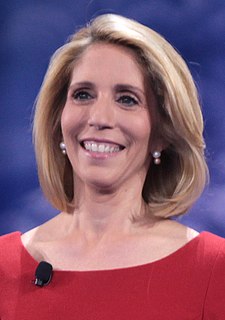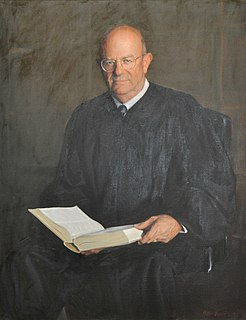A Quote by Elizabeth Warren
Congress must go further to protect the right to privacy, to end the NSA's dragnet surveillance of ordinary Americans, to make the intelligence community more transparent and accountable.
Related Quotes
Suspicionless surveillance has no place in a democracy. The next 60 days are a historic opportunity to rein in the NSA, but the only one who can end the worst of its abuses is you. Call your representatives and tell them that the unconstitutional 'bulk collection' of Americans' private records under Section 215 of the Patriot Act must end.
The government must give proper weight to both keeping America safe from terrorists and protecting Americans' privacy. But when Americans lack the most basic information about our domestic surveillance programs, they have no way of knowing whether we're getting that balance right. This lack of transparency is a big problem.
When we have some horrible terrorist attacks happen in some country we see in the recording that follows, that the intelligence community already knew about these people in advance. We know that these countries were involved in intelligence sharing premiums, that they benefited from mass surveillance, and yet they didn't stop the attacks. Yet at the same time we immediately see intelligence officials running to the newspapers and claiming that we need more surveillance, that we need more intrusion, that we need more expense of powers because it could have stopped an attack.
The most striking thing Snowden has revealed is the depth of what the NSA and the Five Eyes countries [Australia, Canada, New Zealand, Great Britain, and the US] are doing, their hunger for all data, for total bulk dragnet surveillance where they try to collect all communications and do it all sorts of different ways. Their ethos is "collect it all."
The intelligence community's 2002 National Intelligence Estimate (NIE) stated, in a formal presentation to President Bush and to Congress, its view that Saddam had weapons of mass destruction - a belief in which the NIE said it held a 90% level of confidence. That is about as certain as the intelligence community gets on any subject.
What is important to me is that I'm not accountable to and not controlled by party leadership. At the end of the day, I'm able to make my own decisions according to what's best for the community and the constituents I represent. It doesn't depend on what the partisanship is to the right or to the left.
Congress can protect small businesses by providing effective oversight over SBA policies and make sure they take into account the needs of small businesses while also protecting taxpayer dollars. Congress also needs to make sure that new banking regulations do not make it more costly for community banks to lend to small businesses.
Once you've created an intelligence so smart, the real job of that intelligence is to protect itself from other intelligences becoming more intelligent than it. It's just kind of like human beings. The way you look at money or the way you look at the success of your child, you always want to make sure that as far as it gets, it can protect itself and continue forward. So I think any type of intelligence, no matter what it is, is going to have this very basic principle to protect the power that it has gained.
There is no part of the executive branch that more exists on the outer edge of executive prerogative than the American intelligence community - the intelligence community, CIA, covert action. My literal responsibility as director of CIA with regard to covert action was to inform the Congress - not to seek their approval, to inform.

































